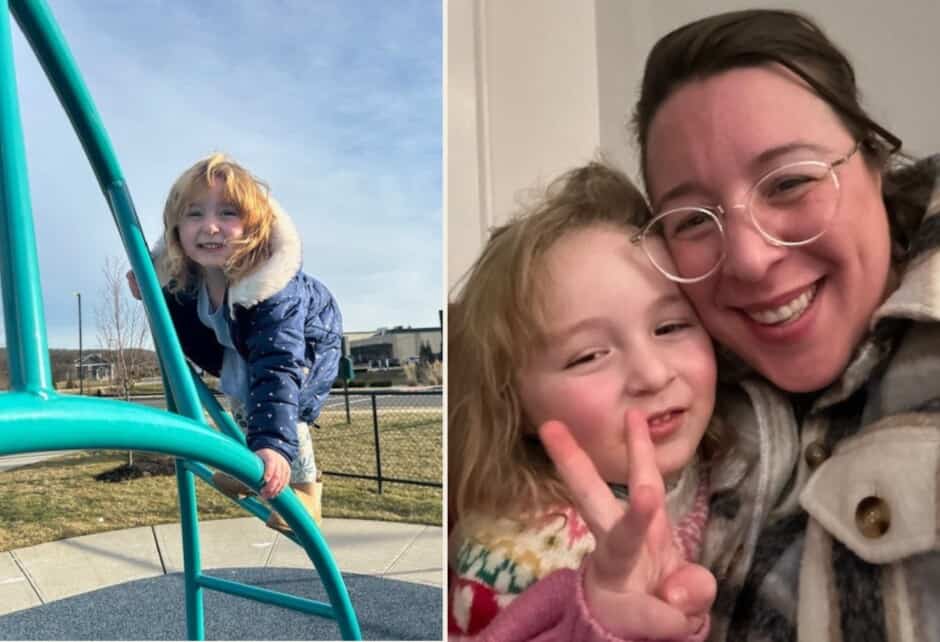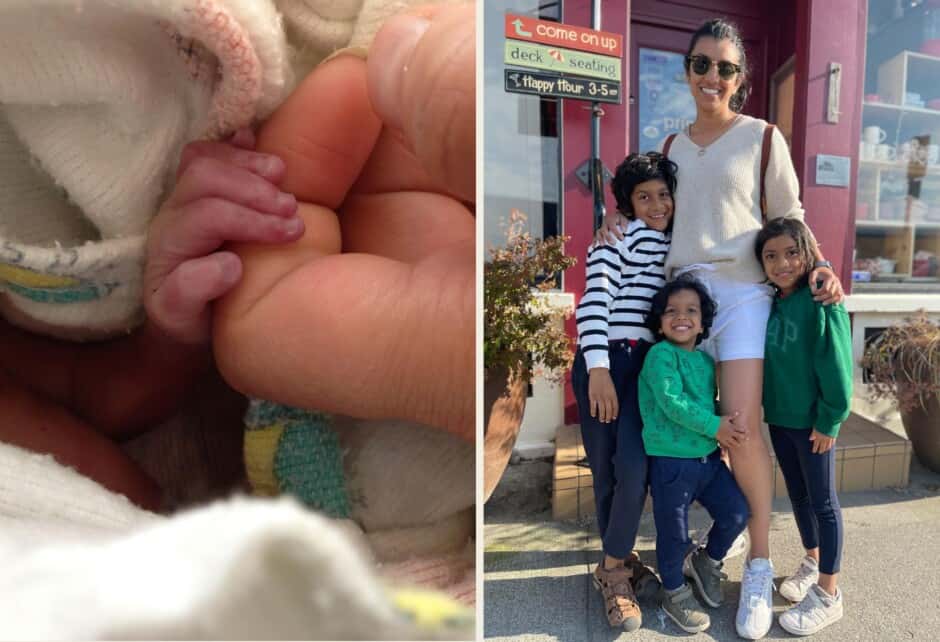
Mom Talk: Learning How To Be An Autism Mom
Written by Theresa Lyons, MS, MS, PhD
Photography by PHOTOGRAPHED BY NICKI SEBASTIAN
Autism affects 1 in every 59 children in the US—approximately 1 in 37 boys and 1 in 151 girls, according to the CDC. April is Autism Awareness Month, and we love the perspective of Theresa Lyons. This incredible mom (and doctor) is an open book when it comes to the early challenges and heartaches that followed her daughter’s autism diagnosis, but also the hope and much-needed help that defines her family life now—which includes roller coasters, crushes, and so many other experiences she once thought were out of reach. Read on for a glimpse into what it’s been like for her to mother and advocate for her daughter.
For the second Valentine’s Day in a row, my 10-year-old daughter came home from school with flowers in her book bag, from a boy. The first year I was shocked, but this year I was happy and ready. It’s becoming our yearly ritual to take the flowers to the kitchen, lay them down on the counter, pick out a vase, fill it with water, arrange the flowers, and put them on the dining room table. It is such a precious mother daughter moment that I fully enjoy, but we weren’t supposed to experience this.
Life wasn’t always this fun. My daughter was diagnosed with severe autism when she was 3 1/2 years old and I had no idea how to help her live her best life. Even though I thought I was trying to do everything “right” as a mom, my daughter wasn’t speaking, writing, or smiling. She had meltdowns, noise sensitivity, light sensitivity, seizures, and aggressive behavior. She didn’t feel pain and she couldn’t sit still. She was withdrawn, and everything felt difficult.
We couldn’t even take a simple walk to the park, and I didn’t know exactly how to start helping her since all I read about autism said that nothing could change. I wanted to believe she could have a happy and healthy life, but I didn’t want to do just anything and then feel like I was failing her even more. I wanted to know all the answers before I started helping, but that wasn’t possible. Our lives at the time were dark and increasingly lonely. I felt like my world was spinning out of control.
Even though I have a PhD in chemistry from Yale University and worked for years in the healthcare industry, I was so consumed with anger and grief that I wasn’t thinking logically. I started to frantically take her to different specialists, however all they could say was “Ah,that’s just autism.” I felt so frustrated not finding doctors who would listen to my concerns. I was exhausting myself because I was trying to do everything on my own. Asking for help was hard and receiving help was even harder.
I needed to change two things. The first was to find extremely knowledgeable doctors who believed more was possible for my daughter. And the second was to stop trying to do everything on my own. Back then, I had a difficult time asking people for help. For some reason I felt like I should be able to figure everything out on my own. I feared being thought of as a “bad” mom. Decades ago autism was blamed on cold and non-nurturing mothers, so I was afraid that somehow all my daughter’s autism issues were my fault. I didn’t want to fail as a mother but yet that is exactly what I felt was happening.
I had reached my breaking point when I decided that I could fix the windows on my house myself. I was up on a ladder trying to lift a heavy window part when I had lost my balance and slammed into my house, almost falling off the ladder. At that moment I realized how ridiculous I was for trying to do everything myself. I literally almost killed myself rather than asking for help. On that ladder clinging to my house, I swore to myself that from then on I would start asking for help.
So I did. I started asking other parents what they did to help their children live their best lives after an autism diagnosis. These parents started telling me about doctors that would look for what was causing the behaviors and address the causes. This was really important to me as a scientist because I knew that I wanted to address what was causing my daughter’s problems and not just try to cover it up.
For example, sleep was a huge issue. It seemed like the only answer I was being told about was melatonin, but I didn’t like the idea of my daughter taking it for the rest of her life. There were comments on the internet from parents saying that melatonin was fantastic, but that it lost its efficacy after a while, and that if that happens the solution is to take “melatonin vacations”—meaning stop giving melatonin for a few days and then restart giving it. This is not a good long term solution. I was already so grouchy from lack of sleep from a year or so of my daughter’s sleep issues that I couldn’t imagine the rest of our lives being that way. Plus, no one functions well after not getting a good night’s sleep, let alone years of not sleeping. There had to be a better way.
When I started asking more questions about doctors who looked for root causes, I found out about Functional Medicine. In Functional Medicine, doctors are trained to look for the root causes of symptoms and treat them, rather than just suppress the symptoms. For example, when someone presents with sleep problems, there are a number of actual causes, and a Functional Medicine doctor will run urine, stool, and/or blood tests to see what the problem is, not just recommend a supplement that would have to be taken long term.
Functional Medicine is becoming more well known due to doctors such as Dr. Mark Hyman, Dr. Terry Whals, and Dr. David Perlmutter, who are changing the fields of cardiovascular health, multiple sclerosis, and neurology. They show how health can be regained by addressing the root causes. I researched Functional Medicine for a year and spoke to many Functional Medicine doctors before finally setting up an appointment with a Functional Medicine doctor for my daughter.
Goodness, how different my daughter is after working with a Functional Medicine doctor. She’s not the same child she was. She’s happier, adventurous, and fierce about learning! I’m a parent now. Before having a Functional Medicine doctor on our healthcare team I was only a caregiver, but now I can be a parent. Valentine’s Day now means me wondering what boy has a crush on my daughter—that is such a parent thing to do.
It’s not just Valentine’s Day. We’ve experienced things that I didn’t think would ever be possible, like marching five miles in the Columbus Day parade down 5th Avenue in New York. I grew up in New York and watched so many parades. When I was pregnant with my daughter, my mom and I marched in the NYC Halloween Parade and I wanted to do similar things with my daughter when she was born. Autism almost took all that away from us. Almost.
Last summer we went to Six Flags. I didn’t know how my daughter would react. I love roller coasters and she had shown some interest so we went on an adventure. I had no idea how much she would love it! We went on every single rollercoaster. She’s a daredevil just like me. I loved how on the ride she would get scared and grab my shirt but then when the ride was over she laughed and wanted to do it again. I smiled so much that day. It was just magical. Without a doubt in my mind, if we hadn’t worked with a Functional Medicine doctor we would not be doing these things.
Don’t waste time like I did. You don’t have to do it all on your own anymore. You don’t have to drag your child from doctor to doctor and not get any true help or answers. Your child doesn’t have to be unhappy their entire life. So much in your life and your child’s life can change by finding the right help.
Are you a mother with something to say? Send us an email to be considered for our “Mom Talk” column.
Share this story



